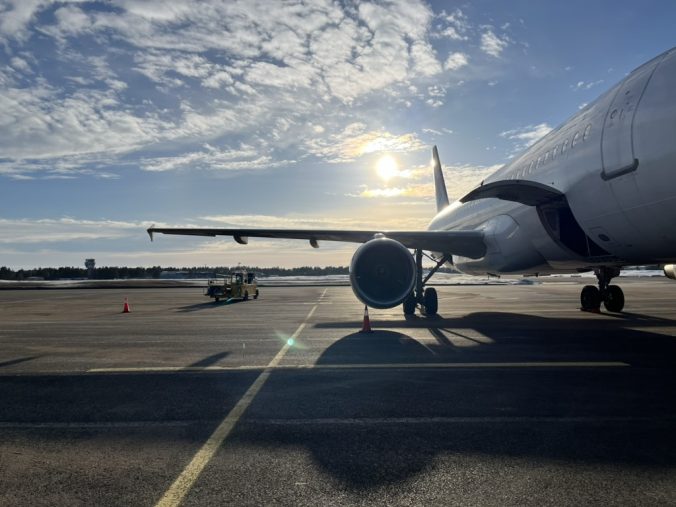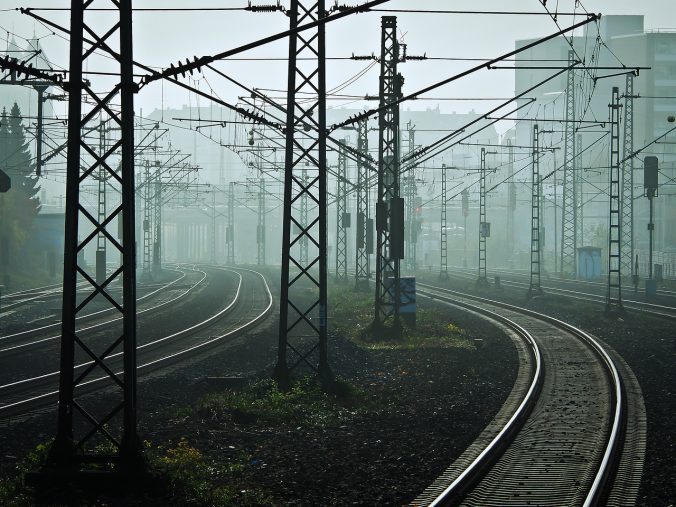Den 9e april hade vi ett mycket trevligt referensgruppsmöte i AROA-projektet. Detta tillfälle användes för att presentera vad som hänt i projektet men också för att få återkoppling och diskutera våra idéer med branschexperter. Under förmiddagen introducerade Åsa Cajander dagen och sedan diskuterade vi några begrepp och hur de skulle kunna appliceras på våra tre […]
Continue readingBild genererad via DALL-E. I projektet jag är del av har vi genomfört runt 30 intervjuer med olika intressenter inom Sveriges flygplatsvärld för att skapa förståelse kring införandet av teknologi på flygplatser och hur teknologin påverkar markpersonalens arbetsmiljö. För att transkribera intervjuerna har vi använt Open AIs Whisper, som funkar på det viset att man […]
Continue readingInsights from the FoU Program Conference: Exploring the Impact of Robots, Automation and AI on Work Environments

Last week, we had the privilege of attending the Research and Innovation Program Conference organized by AFA Försäkring. The focus was on understanding how automation, robotics, and artificial intelligence (AI) affect work environments. It was an insightful event where we got to learn from various projects, including our own Tara and Arora initiatives. The blog […]
Continue reading“Sustainability is a wicked problem!” they say, and sustainable software is no exception. Sustainable software is a term that has been buzzing in the corridors of academia and among tech practitioners, yet its definition remains elusive. The discourse among software engineers and HCI (Human-Computer Interaction) communities often finds itself at a crossroads, grappling with the […]
Continue readingI wrote earlier about the threats that are currently attacking our computer systems in the society, and we can also see that there are new attempts at increasing the security in the systems. However, there is an inherent problem in computer security, namely the transparency and usability of the systems. It seems that it is […]
Continue readingThis post was actually started in late 2023, when the Swedish Church had become the victim of a cyberattack with ransomware, which took place November 22. The church organization at that time decided that it will not pay the ransom (in order not to make this a successful attack) but will instead recover the systems […]
Continue readingSustainable development is the development that meets the needs of the present without compromising the ability of future generations to meet their own needs. Gro Harlem Brundtland, 1987 In recent years, sustainability has emerged as a critical concern in various domains. While environmental sustainability remains a focal point, sustainability also encompasses social and economic dimensions. […]
Continue readingMaria will be conducting research on work engagement within the realm of automation and AI, specifically within the field of rail traffic. Her particular interest lies in exploring the evolving division of labor between humans and technology, examining how AI will reshape work practices, and the potential risks of diminishing the meaningfulness of work. While […]
Continue readingIn the fast-paced world of technology and automation, keeping a close eye on how these advancements affect the workforce’s engagement and dynamics is essential. The “ARbetsengagemang vid autOmatisering, robotisering och AI” (AROA) project aims to illuminate this crucial aspect of our work. In this blog post, we’ll delve into the project’s first-year report and its […]
Continue reading


